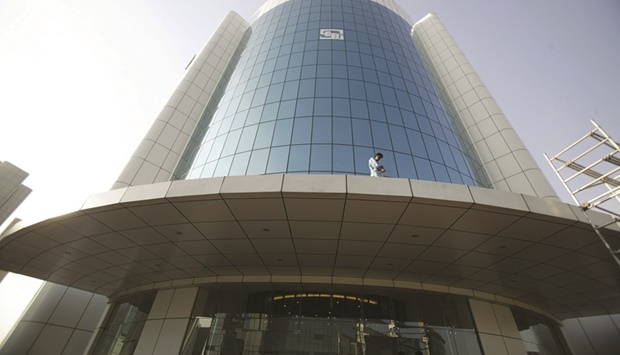A sprawling regulatory probe that’s ensnared the Indian partner of Schroders Plc is roiling one of the nation’s largest asset managers and is poised to shake up India’s $465bn mutual fund industry.
Axis Asset Management Co, which is India’s seventh largest mutual fund manager and partly owned by Schroders, in May sacked two employees, including its chief dealer, amid an ongoing internal probe.
The fund in early July submitted its findings to regulators and said it had evidence to believe that the terminated executives had violated securities law.
Meanwhile, the Securities & Exchange Board of India has been carrying out its own investigation into potential front-running by the two men, a person familiar with the agency’s probe said, asking not to be identified discussing private information.
Front running is the trading of stocks by someone privy to information about a large impending transaction that will move prices. It’s illegal in India, and massive search and seizure operations were conducted by the market regulator at the offices and residences of Axis Mutual Fund executives, and other stock brokers and traders, the person said.
In all, the regulator’s probe covered 30 locations in different cities after it received surveillance alerts and input from the stock exchange about suspected front running in trades of Axis Mutual Fund by certain parties, the person said.
Interviews with nine people familiar with the investigations showed how a pandemic-fuelled boom in India’s investment industry may have made it harder for executives and regulators to manage the fallouts of that outsized growth. British investment giant Schroders holds a 25% stake in Axis Asset Management, with Axis Bank Ltd holding the rest.
Some corporations have withdrawn money from the Indian firm’s funds following the allegations, another person familiar with the matter said, asking not to be named because they weren’t authorised to speak publicly. Axis Mutual Fund didn’t answer queries about corporate withdrawals but in a public statement said that the firm has followed regulatory guidelines at all times and believes that the conduct of the concerned individuals doesn’t have any impact on its liquidity or operations. Schroders and Axis Bank didn’t respond to emails seeking comment.
Viresh Joshi, the former chief dealer, has filed a lawsuit alleging wrongful termination and has sought Rs542.6mn, his legal firm, Mansukhlal Hiralal & Co said in an e-mail. The other employee named by the firm, Deepak Agrawal, couldn’t be contacted for comment.
Calls and a message to a mobile number previously believed to belong to him weren’t answered, and Bloomberg wasn’t able to obtain any other contact information for him or any representatives he may have hired.
Meanwhile, legal experts are predicting more scrutiny for the entire Indian mutual fund industry.
“The scale at which the regulator is investigating the case makes us believe that SEBI means serious business,” said Sumit Agrawal, founder of Regstreet Law Advisors, and a former legal adviser to the market regulator. “We expect a speedier investigation and action that could result in tighter regulations for fund managers.”
Going forward there is likely to be increased scrutiny of bank accounts and tax returns of fund managers and dealers and their immediate relatives, he said.
Mutual funds, which fall somewhere between high-risk stock trading and low-return bank deposits, have offered an attractive proposition to both young and risk-averse older investors in India. The industry has grown nearly five-fold in the last decade, with over Rs37tn ($465bn) in assets at the end of June, according to the Association of Mutual Funds In India.
Investors were net buyers of equity-based funds for a sixteenth straight month in June, even as concerns about high inflation and tighter monetary policy kept equity markets volatile. Axis Mutual Fund joined the industry with its first investment plan in 2009, and had Rs2.5tn of assets under management at the end of June this year. Among the early members of its team was Viresh Joshi.
Over the coming years, Joshi progressed in the company and became the chief dealer, overseeing its trading operations in 2019. He was involved in executing trades in the glass-walled dealing room on the first floor of the firm’s office, until the pandemic in 2020 forced most people to work from home.
Dealing rooms for mutual funds are strictly controlled spaces equipped to record every activity inside. Axis Mutual Fund’s dealing room has cameras overseeing all activities, desk phone lines are recorded while the use of mobile phones is prohibited.
It isn’t publicly known if Joshi worked from home during the pandemic or from the dealing rooms. But in January this year, the company management was informally told by other market participants that there appeared to be something amiss in transactions being executed by Joshi, according to two people familiar with the developments in the case, who asked not to be identified discussing confidential details. Joshi also had unexplained absences during trading hours, the people said.
The firm decided to investigate and roped in Alvarez & Marsal Inc to help. In early May, Axis Mutual Fund said it had put Joshi and another fund manager, Deepak Agrawal, under suspension pending an internal probe into potential irregularities. Soon after, people familiar with the matter told Bloomberg that SEBI was investigating whether the two men were involved in front running.
“We believe that our client is being scapegoated and his termination is wrongful and unlawful and that principles of natural justice were denied to him,” Chirag Shah, of-counsel at the law firm representing Joshi, said via email. “When we wrote to Axis Mutual Fund to let us know what the charges are or whether there was any show cause notice, they did not provide us with the same.”

Securities & Exchange Board of India building in Mumbai. A sprawling regulatory probe that’s ensnared the Indian partner of Schroders is roiling one of the nation’s largest asset managers and is poised to shake up India’s $465bn mutual fund industry.
